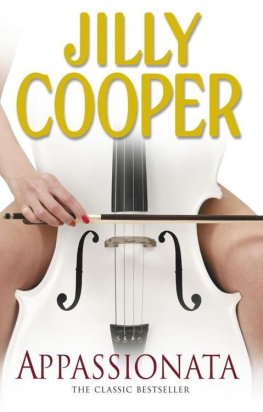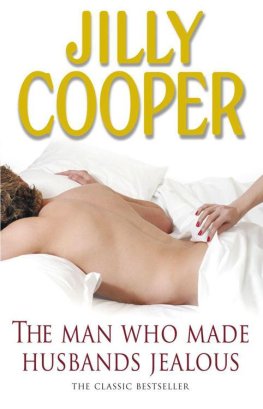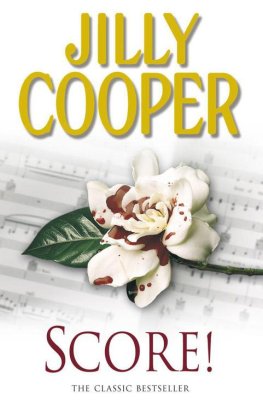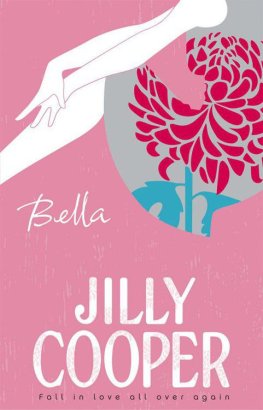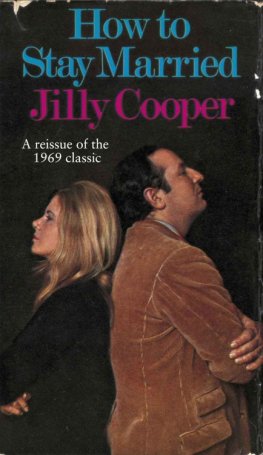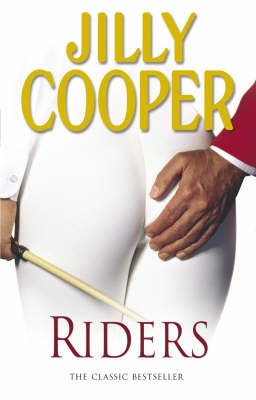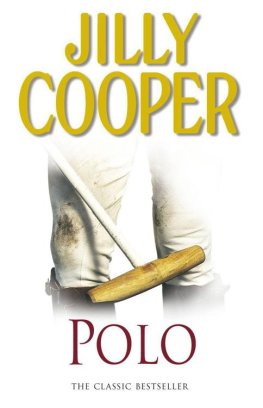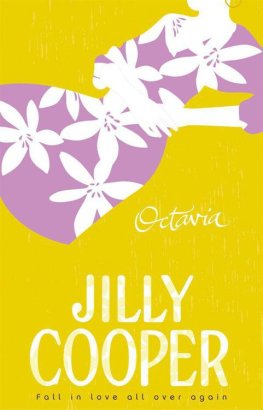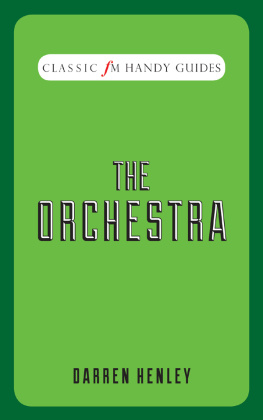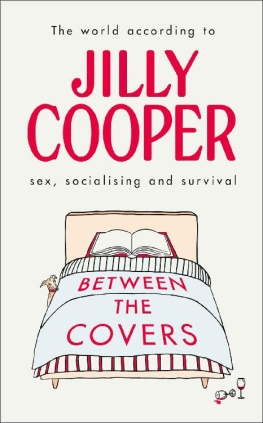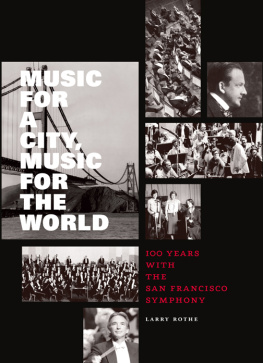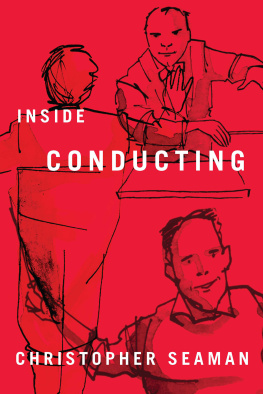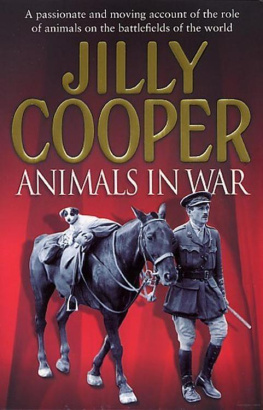To the Royal Scottish National Orchestra
because they make great music
and I love them all.

I felt desolate when I finished Appassionata, because Id grown so fond of everyone whod helped me. I was constantly touched and amazed that musicians who work such punishing hours often for totally inadequate reward should not only be the merriest and the funniest people in the world, but also the most generous with their time.
I must therefore start with a huge thank you to my guardian angels: benign bassoonist Chris Gale, his wife Jacoba, ace cook and viola player, and another viola player, Ian Pillow, who writes Classic FM magazines wonderfully funny column Pillow Talk, all of whom are from the Bournemouth Symphony Orchestra; fair Annie Tennant, Education Officer of the City of Birmingham Symphony Orchestra; Jack Rothstein, super violinist, soloist, leader and conductor, his wife Linn Hendry, another ace cook and a pianist who specializes in violin repertoire and, finally, brilliant violinist Marat Bisengaliev and his wife Steena, sublime first flute at the English Northern Philharmonia. These eight muses gave me inspiration, encouragement, endless introductions and marvellous hospitality. They never minded being bombarded with silly questions: Could you bonk a small woman on a Glockenspiel? Would tearstains devalue a Strad? in the middle of the night, and if they didnt know the answer, they always knew someone who did. I cannot thank them enough.
I would also like to thank two great orchestras. The Bournemouth Symphony Orchestra, whose managing director, Anthony Woodcock, very kindly allowed me to spend a fantastic week in Poole, talking to both musicians and management, sitting in on rehearsals, touring the South of England, listening to marvellous concerts. Everyone helped me, but I would like to say a special thank you to: Marion Aston, Kevin Banks, Andy Barclay, Nigel Beale, Philip Borg-Wheeler, Andrew Burn, Johnathan Carney, John Charles, Stuart Collins, David Gill, Stuart Green, Christopher Guy, Helen Harris, Anna Hawkins, Karen Jones, Edward Kay, Jayne Litton, Janet Male, Peter Rendle, Nick Simmonds, Verity Smith, Louise Wright and Peter Witham.
The red lions share of my gratitude, however, must go to the Royal Scottish National Orchestra. In 1992 I wistfully asked my friend Ian Maclay, who now runs the BBC Concert Orchestra, if he knew a band brave enough to take me on tour abroad. Within twenty-four hours, he had elicited an invitation to tour Spain from Paul Hughes, who must be the nicest man in classical music, and who had just taken over the RSNO as managing director. Thus followed one of the best weeks of my life, as the orchestra roared through five cities bringing the very formal Spanish audiences yelling in delight to their feet. Walter Weller, darkly urbane and charismatic, was the conductor. John Lill, adored by musicians and public alike, was the soloist, reducing us to tears of joy by his piano playing and tears of laughter with his outrageous jokes at the parties afterwards. Jacqueline Noltingk ensured everything ran miraculously smoothly.
In May 1995, I joined the RSNO for a second tour, this time of Switzerland. Once again they played gloriously to packed houses and their music in my heart I bore, Long after it was heard no more. Again everyone was sweet to me, but the following were of particular value to my story: Kenneth Blackwood, Helen Brew, Valerie Carlaw, William Chandler, John Clark, John Cushing, Pamella Dow, Morrison and Sally Dunbar, Claire Dunn, Jeremy Fletcher, Charles Floyd, Brian Forshaw, Martin Gibson, John Gracie, John Grant, David Hair, John Harrington, Philip Hore, Duncan Johnstone, Fiona McPherson, Evgeny Minkov, Angela Moore, Jacqueline Noltingk, Joseph Pacewicz, Edwin Paling, Miranda Phythian-Adams, Kevin Price, Stephane Rancourt, Michael Rigg, Alistair Sinclair, Ian Smith, Justine Watts, Stephen West.
One of my heroes in Appassionata is a young pianist, so I am deeply indebted for their advice to great soloists: Philip Fowke, Janina Fialkowska, Alan Kogosowsky. I am also grateful to Philip MacKenzie, conductor and moving force behind the west country Amadeus Chorus and Orchestra and his bassoonist wife, Charlotte, who suggested I play the narrator in Peter and the Wolf at the Colston Hall in 1992 so I could experience the utter terror of performing as a soloist with an orchestra.
My other more gilded hero is a brass player. Here again marvellous anecdotes and many ideas came from David McClenaghan and John Logan, first and third horn of the RSNO; Martin Hobbs, second horn of the BSO; Lance Green, first trombone, RSNO; Danny Longstaff, second trombone of the CBSO; and, above all, the legendary Tony Turnstall, former principal horn of the Royal Opera House Orchestra, Covent Garden.
My main heroine becomes a conductor, so I was immensely grateful for help from Sir Simon Rattle, Andrew Litton, Jean Paul Casadesus, Stephen Barlow, Ross Pople, Denys Darlow, Michael Burbidge, Olivier Dohnnyi and, above all, Andr Previn. Andr, that most droll and beguiling of raconteurs and companions, allowed me to sit in on rehearsals and recording sessions with the mighty London Symphony Orchestra, and talked to me for many hours about both conducting and playing the piano. I must especially thank dear Bill Holland and Harriet Capaldi of Warner Classics for producing the most beautiful CD, titled Appassionata, from a selection of the music featured in the book. On the recording side, I must also thank Erik Smith, Steve Long and Mike Hatch for patiently answering my questions, as did distinguished composers Orlando Gough and Geoffrey Burgon, my neighbour in Gloucestershire.
On the musical administration side, Id like to thank Philippa Sherwood and Andrew Jowett of Symphony Hall, Birmingham, and Christopher Bishop, late of the RSNO, and the Philharmonia for all their help and wonderful hospitality; Ian Killik of the English Northern Philharmonia; Lynn Calvin of the Musicians Union; Libby Macnamara of the Association of British Orchestras; Charles Beare, world expert on string instruments; Sonia Copeland; Chris Steward; Alison Taylor; Ellyn Kusman, Rosamund Leitch of the Wagner Society; Diggory Seacome, timpanist supremo and mover and shaker of the Cotswold Symphony Orchestra.
All the artists agents in Appassionata are perfectly horrid, and bear absolutely no resemblance to darling Sir Ian Hunter, Chairman of Harold Holt or Trudy Wright of Harrison Parrott, both of whom advised and royally entertained me.
During my research I spent a lovely morning at the English National Ballet, where Amanda Gilliland and Jane Haworth were as beautiful as they were informative. I also spent fascinating days at the Royal Academy of Music and the Royal College of Music, watching Professor Colin Metters and the venerable George Hurst assessing student conductors, practising their skills on respective college orchestras. One of the pieces was Bartks Violin Concerto, which Mia Biakella, the soloist, played quite beautifully. I am also grateful to Huw Humphreys, a young conductor, who, after his dbut at the Holywell Music Rooms in Oxford in 1994, gave me invaluable insight into pre-concert nerves and the problems of galvanizing musicians.
On a plane to Lapland in 1993, I sat next to a delightful bassoon teacher, who told me piano competitions were frightfully bent with large lady judges often receiving grand pianos as bribes. After that I naturally included a piano competition in the book.
I then spent a splendidly inspiring week at the Leeds Piano Competition, where I saw no sign of pianos changing hands, and must thank the competitions founder, Fanny Waterman, and Mary Bailey, from the sponsors, Harveys of Bristol; organizer Liz Arnold; Romilly Meagen of the BBC and Roisin Grimley from Ireland. It was also a great thrill to spend time with the brilliant young British contestant Leon Macaulay, who, immediately after the result, touchingly apologized for only coming second: It would have been so much better for your book if I had won.

